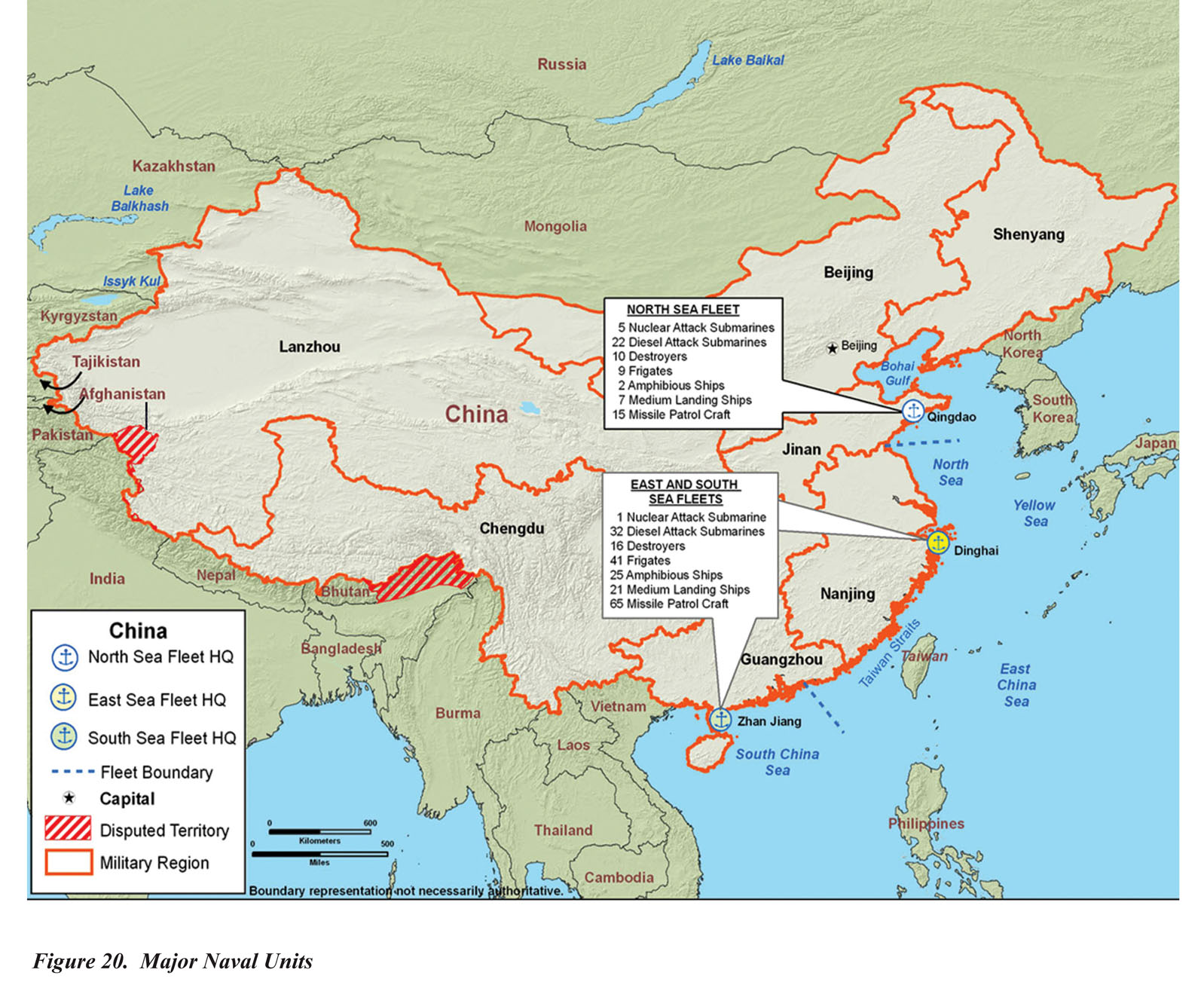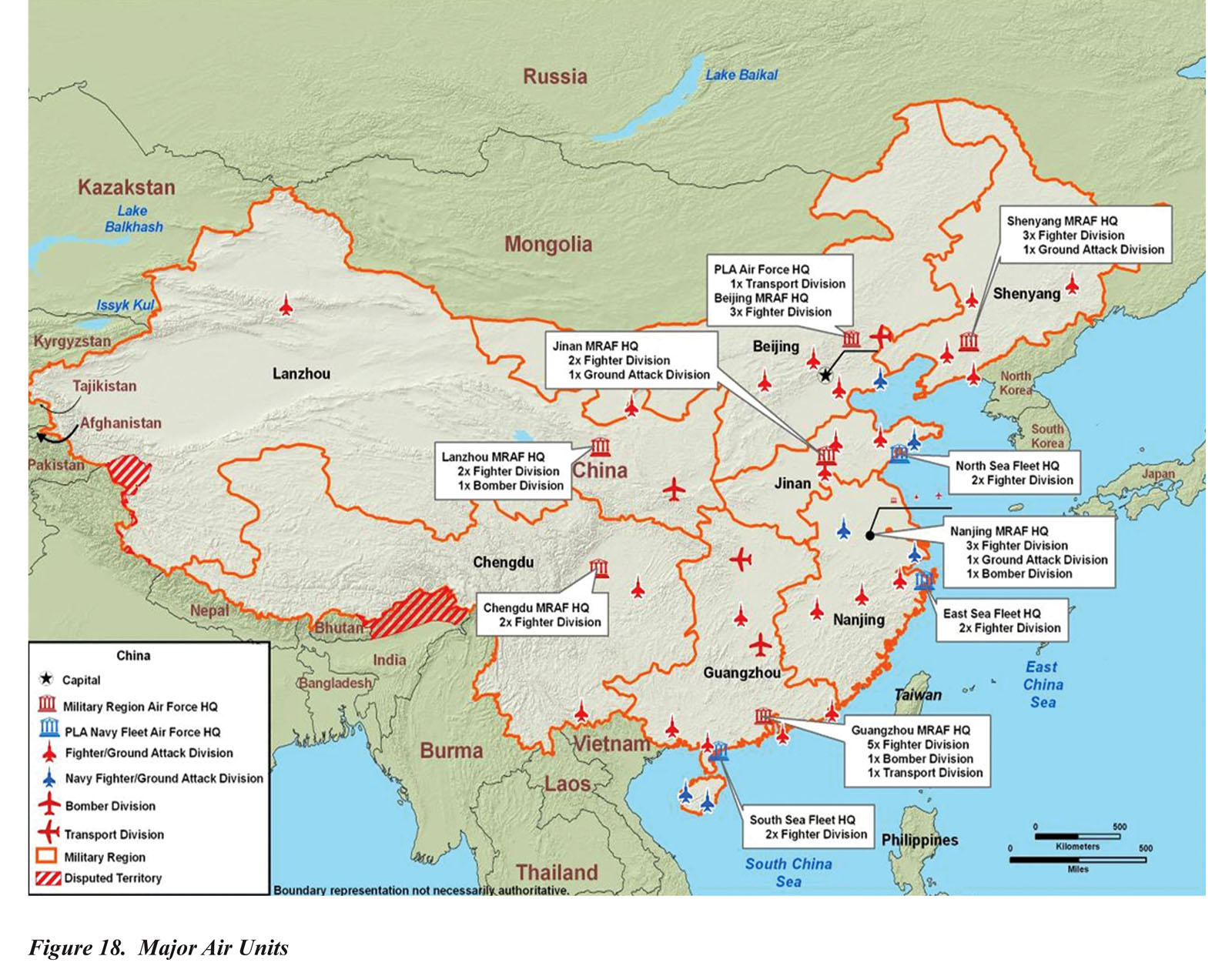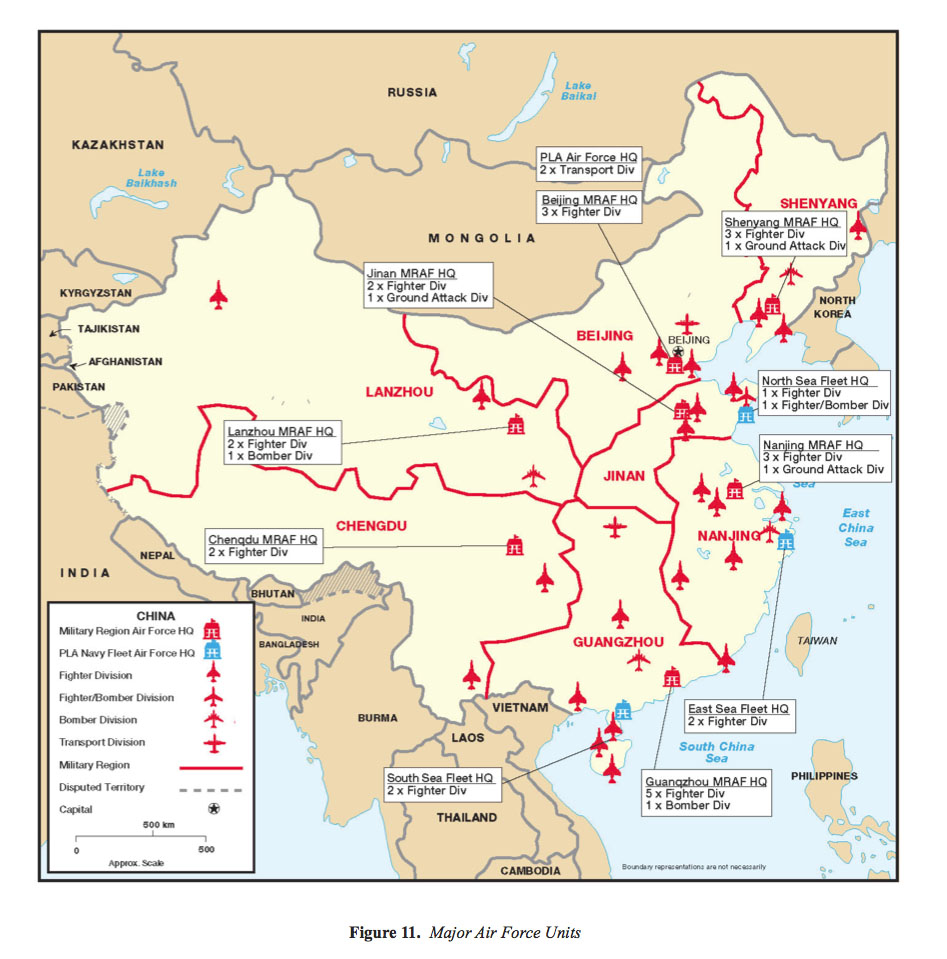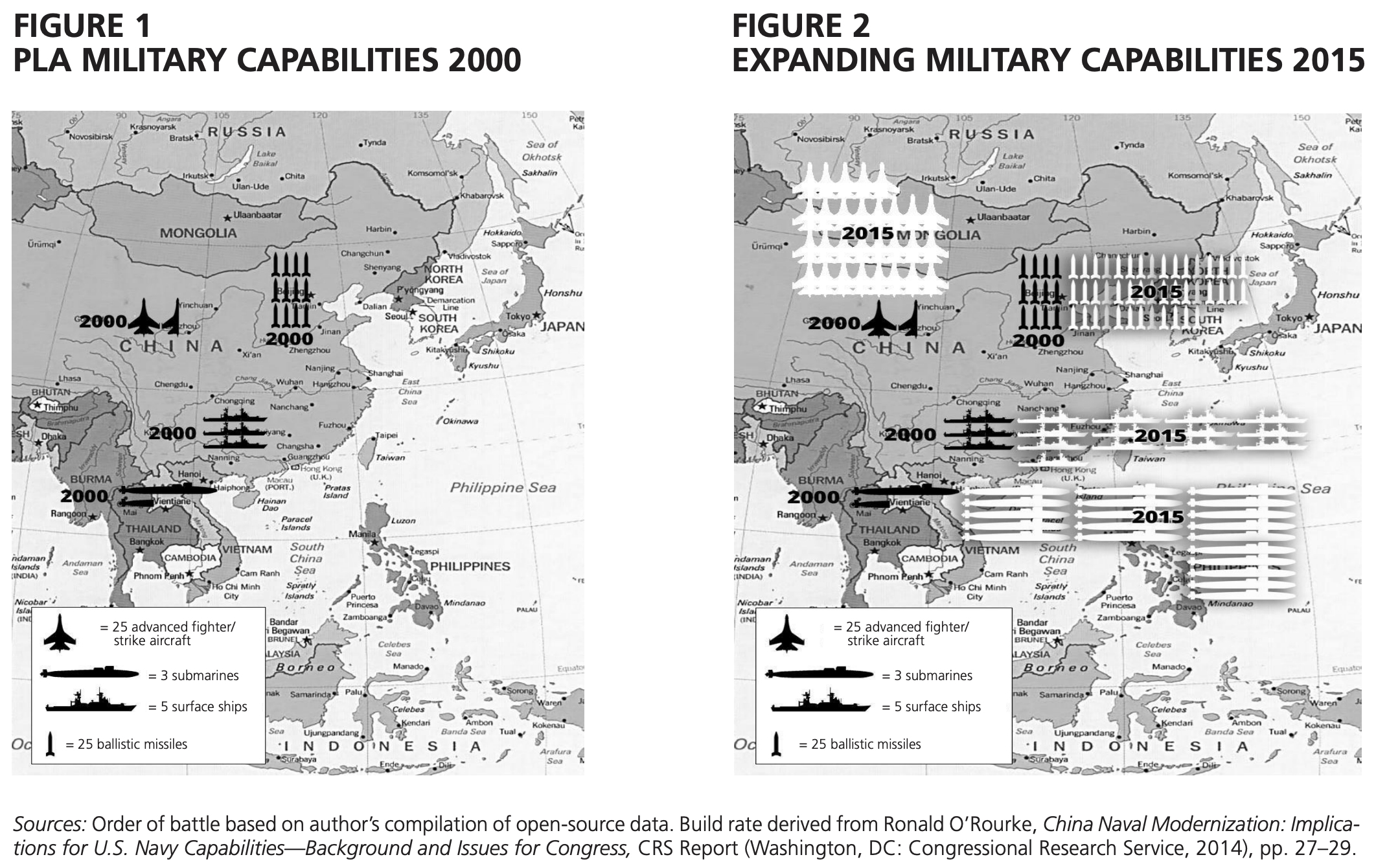Mapping China’s Military Presence: Understanding The Strategic Landscape
Mapping China’s Military Presence: Understanding the Strategic Landscape
Related Articles: Mapping China’s Military Presence: Understanding the Strategic Landscape
Introduction
With enthusiasm, let’s navigate through the intriguing topic related to Mapping China’s Military Presence: Understanding the Strategic Landscape. Let’s weave interesting information and offer fresh perspectives to the readers.
Table of Content
Mapping China’s Military Presence: Understanding the Strategic Landscape

The People’s Republic of China’s (PRC) military posture has undergone a significant transformation in recent decades, marked by modernization, expansion, and a growing global reach. This evolution is reflected in the strategic distribution of its military bases, both within its borders and beyond. Understanding the geography of these bases provides crucial insights into China’s defense strategy, regional ambitions, and global influence.
Domestic Bases: A Backbone of Defense
China’s domestic military base network forms the bedrock of its defense strategy. These bases are strategically located across the vast country, reflecting the diverse security challenges faced by the PRC.
- Coastal Defense: The majority of China’s naval bases are situated along its extensive coastline, primarily focused on defending vital maritime interests in the East and South China Seas. These bases house warships, submarines, and aircraft carriers, enabling the PRC to project naval power and secure access to critical sea lanes.
- Land-based Defense: Army and air force bases are dispersed throughout China’s vast landmass, positioned to deter potential threats from neighboring countries and maintain internal security. The strategic distribution of these bases allows for rapid deployment and coordination of forces in response to various scenarios.
- Missile Defense: China’s missile bases, strategically located across the country, play a crucial role in its deterrent strategy. These bases house ballistic missiles, including intercontinental ballistic missiles (ICBMs), capable of reaching targets across the globe. Their deployment reflects China’s commitment to maintaining a strong nuclear deterrent.
Beyond Borders: Expanding Influence
In recent years, China has begun establishing military bases beyond its borders, signifying a shift towards a more assertive foreign policy and a desire to project its influence globally.
- Djibouti Base: Established in 2017, China’s first overseas military base in Djibouti is strategically located in the Horn of Africa, a region of growing geopolitical importance. The base provides China with a logistical hub for its naval operations in the Indian Ocean, allowing for increased maritime security and access to critical shipping lanes.
- Potential Future Bases: While the Djibouti base is the only officially confirmed overseas base, there have been speculations about potential future bases in countries like Cambodia, Myanmar, and Pakistan. These potential locations, if confirmed, would further enhance China’s strategic reach and provide access to key regional waterways.
Understanding the Significance of China’s Military Bases
The strategic distribution of China’s military bases reflects its growing military capabilities and ambitions. It is essential to understand the significance of these bases within the context of global power dynamics:
- Defense of Vital Interests: China’s military bases are primarily designed to defend its vital interests, including its territorial integrity, maritime security, and economic prosperity. These bases allow the PRC to deter potential aggressors and project power in regions deemed critical for its national security.
- Regional Influence: The strategic location of China’s bases, particularly in the East and South China Seas, allows it to exert significant influence over regional affairs. These bases enable the PRC to assert its claims in contested territories and maintain its dominance in key waterways.
- Global Power Projection: China’s growing overseas presence, exemplified by the Djibouti base, signifies its ambition to become a global power. The strategic location of these bases provides the PRC with logistical support and access to key maritime routes, enabling it to project power and influence beyond its immediate region.
FAQs on China’s Military Bases
Q: What are the main objectives of China’s military bases?
A: China’s military bases are primarily aimed at defending its national interests, including its territorial integrity, maritime security, and economic prosperity. They also serve to project power and influence in key regions, both within and beyond its borders.
Q: How do China’s military bases affect regional stability?
A: The presence of China’s military bases, particularly in the East and South China Seas, has raised concerns about regional stability. Some countries perceive China’s military buildup as a threat to their security interests, while others see it as a natural consequence of China’s growing power.
Q: What are the potential implications of China’s overseas military bases?
A: China’s growing overseas military presence has the potential to reshape the global power balance. The establishment of bases in key locations, such as Djibouti, provides China with a strategic advantage, allowing it to project power and influence in critical regions.
Tips for Analyzing China’s Military Bases
- Consider the geopolitical context: Analyze the strategic location of bases in relation to China’s national interests, regional disputes, and global power dynamics.
- Evaluate the capabilities of the bases: Examine the types of military assets deployed at each base, including warships, aircraft, and missiles.
- Assess the potential impact of the bases: Consider the implications of China’s military buildup for regional security, global power balance, and international relations.
Conclusion
China’s military bases, both domestic and overseas, are a reflection of its evolving defense strategy, growing military capabilities, and ambitions to become a global power. Understanding the strategic distribution and significance of these bases is crucial for navigating the complexities of the contemporary international security landscape. As China’s military presence continues to expand, its strategic choices will have profound implications for the future of regional and global security.








Closure
Thus, we hope this article has provided valuable insights into Mapping China’s Military Presence: Understanding the Strategic Landscape. We hope you find this article informative and beneficial. See you in our next article!